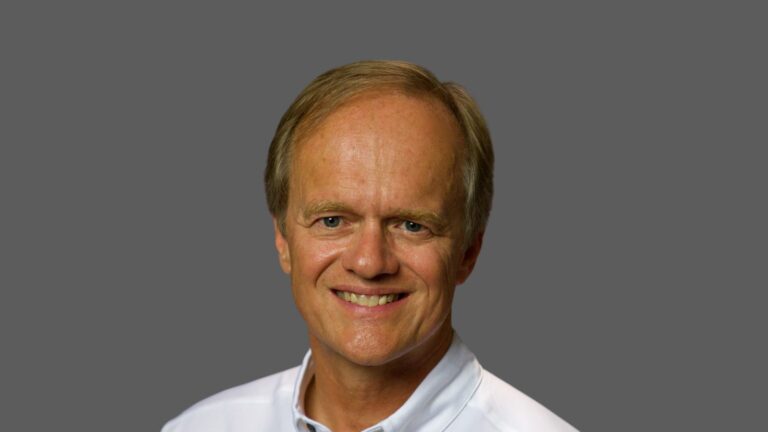Bill Yeargin is the CEO of Correct Craft, a 99-year-old boat company which has manufacturing facilities across the U.S. and distributes into 70 countries. Correct Craft has won all their industry’s major awards and was recognized as Florida’s “Manufacturer of the Year.” Yeargin has authored six books including his new book “Faith Leap” and the bestseller, “Education of a CEO.” He earned a bachelor’s degree in accounting and an MBA, and completed post-graduate studies at Harvard, Stanford, Wharton, Villanova, and MIT. Nova Southeastern University awarded him a Doctorate of Humane Letters in recognition of his “contribution to the lives of others and the betterment of humanity.” He served both the Obama and Trump administrations on cabinet-level advisory councils and has been invited to the White House eight times, by three different presidents. He has served on dozens of for-profit and nonprofit boards and was appointed by Florida’s Governor to serve on the University of Central Florida board of trustees. He has been recognized with many of the marine industry’s top awards including Boating Industry’s “Mover and Shaker of the Year.” Florida Trend magazine called him one of “Florida’s Most Influential Business Leaders” and he is an Orlando Business Journal “CEO of the Year.” He was also presented the “Governor’s Business Ambassador Medal” by the Governor of Florida.
Company: Correct Craft
We are thrilled to have you join us today, welcome to ValiantCEO Magazine’s exclusive interview! Let’s start off with a little introduction. Tell our readers a bit about yourself and your company
Bill Yeargin: Walter C. Meloon embarked on a remarkable journey in 1925, founding the Florida Variety Boat Company. In those early days, the company’s skilled craftsmen poured their talents into constructing a diverse range of watercraft, from powerboats to race boats and even sailboats. However, it was the allure of powerboats that captivated their attention by 1936.
A radio advertisement sparked a fateful idea in Walter’s mind. “The correct heel for your shoe” inspired him to ponder, “Why not offer the correct craft for you?” And so, the Florida Variety Boat Company transformed into Correct Craft. Despite the hardships of the Great Depression, the company’s spirit remained unyielding, and it continued to flourish.
When the dark cloud of the Second World War loomed over the horizon, the reputation of Correct Craft caught the attention of the United States government. Desperately needing storm boats to support the war effort, the nation turned to this passionate boat manufacturer. Driven by an unwavering sense of patriotism, the Meloon family answered the call of duty. In 1942, they opened a second manufacturing plant in Titusville, Florida, dedicated to fulfilling government contracts.
As the war drew to a close, an extraordinary challenge emerged. General Eisenhower sought the construction of an unprecedented 400 boats in just thirty days. It was a monumental task, surpassing anything Correct Craft had ever faced. But with a combination of prayer and remarkable ingenuity, the company defied the odds. Their innovative production process, dubbed “A Miracle Production” by National Geographic, allowed them to deliver the required number of boats in record time, solidifying their reputation as a reliable and top-quality manufacturer.
The post-war era from the mid-1940s to 1957 saw the recreational boat business flourish. In the 1960s, the marine industry embraced new horizons with the advent of fiberglass. Correct Craft, in collaboration with designer Leo Bentz, seized this opportunity and introduced the revolutionary fiberglass Ski Nautique to the market in 1961.
A groundbreaking ceremony in 1966 heralded a new chapter for Correct Craft, as they established a cutting-edge manufacturing facility in Orlando, Florida. Throughout the ’70s and ’80s, they continued to thrive, producing a wide array of boats, including runabouts, cuddy-cabin models, and center console vessels. Their Ski Nautique 2001 and Barefoot Nautique played pivotal roles in towing tournaments worldwide, as towed watersports surged in popularity.
In the 1990s, Correct Craft’s focus shifted from creating minimal wake to generating towering waves behind the boat, catering to the rising demand for kneeboarding and wakeboarding thrills. They ingeniously invented the Flight Control Tower, a patented innovation that added extra height to these extreme sports. Alongside factory-installed ballast tanks, this revolutionized the wakeboard boat market, leading to the creation of the iconic Air Nautique.
Embracing progress, Correct Craft embarked on a new chapter in 2005. Construction commenced for a state-of-the-art manufacturing plant in Central Florida, spanning an impressive 217,000 square feet. In September of 2006, Correct Craft appointed Bill Yeargin as President and CEO, embarking on a new strategic direction.
Under Bill’s leadership, Correct Craft has experienced remarkable growth, increasing its revenue from $40 million to over $1 billion. Bill’s dedication to people, performance, and philanthropy has strengthened the company’s foundation, aligning with its longstanding principles while forging a forward-looking path to improve lives. Correct Craft has solidified its culture, using a culture pyramid, and expanded through strategic acquisitions and optimizations. The company has firmly established itself as a prominent leader in the marine industry.
Since its inception in 1925, Correct Craft has reigned as the global leader in tournament inboard, freshwater fish and utility, and recreational boats. Their expertise and passion have propelled them to the forefront of the industry. Rooted in a commitment to people, performance, and philanthropy, Correct Craft remains dedicated to expanding their brands and crafting premium products that bring joy and happiness to families around the world.
Can you share a time when your business faced a significant challenge? How did you navigate through it?
Bill Yeargin: Wow, that question brought back some memories! Three decades of leading organizations resulted in a lot of challenges. The 1990s recession and luxury tax on boats, the dotcom bust, 9-11, the Great Recession, COVID-19, and the current boating industry downturn are just a few that jump to mind. I am an optimist, but I also tell leaders to be prepared because every few years, something they don’t expect will happen.
Leaders should not be as concerned about predicting what challenge will pop up as they should be prepared for any challenge. I see organizations trying to identify specific issues, and while there is some value in that, the most important thing is to be prepared for something unexpected. My experience is that many of the steps you take to deal with almost any challenge are the same. We have a generic “downturn plan” that we must pull out every few years. Most of the time, people think of a downturn as being driven by a recession, but it could be anything, even a pandemic!
Once the challenge has occurred, execute your downturn plan while providing extraordinary clarity to your team. Even when the situation is dire, your team will be energized if they are told the truth. Some leaders worry about providing clarity, especially when the outlook is not good, but the result of not providing clarity to their team is much worse. In 2008, our company lost 90% of our orders overnight because of the Great Recession. I didn’t have great news to share with our hundreds of employees, but I was transparent with them, including sharing when we would make the decision on possible layoffs and how we would help them. Today, over fifteen years later, I still run into employees who appreciate how we handled that situation.
How has a failure or apparent failure set you up for later success?
Bill Yeargin: This is a great question. Every challenge we have faced has positioned our organization for future success. Challenges are no fun, but they can be a catalyst for structuring your organization for future success. As painful as the 2008-2009 Great Recession was on our company—and it was miserable—we were able to make ten years of necessary changes in ten weeks. This set us up for tremendous growth, growing Correct Craft from $40M in annual revenue to over $1B.
How do you build a resilient team? What qualities do you look for in your team members?
Bill Yeargin: When we have a challenge, we always say, “Who, not how.” My job as CEO is to clarify our “Why,” values, vision, strategic plan, and annual plans. After that clarity is provided, the most important thing is getting the right people. We look for character, competency, and chemistry. Often, leaders focus on just one of those three items which results in them making a bad hiring decision. However, when you get all three right, the new hire always works.
How do you maintain your personal resilience during tough times?
Bill Yeargin: I work hard not to get emotionally hijacked by the situation. When times are good, most leaders think that will last, and when times are tough, it is easy to get captured in despair. However, astute leaders know that both good times and bad times will pass. The advantage of having been around for a while is that you understand that business functions in cycles, and we will eventually transition out of both the good and bad. This mindset will help a leader make sound, logical, long-term decisions.
What strategies do you use to manage stress and maintain focus during a crisis?
Bill Yeargin: Personally, I rely heavily on the benefits of exercise, including cardio, resistance, and yoga. People often ask me how someone with all my responsibilities finds time to exercise, and I tell them it is easy. If I exercise four hours during the week, I feel like it provides me with ten hours of vitality, physically, mentally, and emotionally. Exercise has a great return on investment.
How do you communicate with your team during a crisis?
Bill Yeargin: Directly and clearly. My leadership style is to set clear expectations for our team and hire good people who can meet those expectations. Part of that style requires giving folks a lot of autonomy. However, during a crisis, the leader often needs to be more autocratic. It’s not a style I generally recommend, but during tough times, it is usually necessary. Often, I will describe this as the difference between a commercial pilot and a fighter pilot. Commercial pilots are important and, much of the time, leaders can function in commercial pilot mode. However, there are times when the leader needs to be a fighter pilot.
What advice would you give to other CEOs on building resilience in their organizations?
Bill Yeargin: This sounds overly simplistic but hire resilient people. When a leader has the right “Who’s” in place, everything becomes easier, even managing a crisis. Once you have the right folks, model how not to get emotionally hijacked by a crisis. Anything can be managed with the right people making good, unemotional decisions.
How do you prepare your business for potential future crises?
Bill Yeargin: Expect the unexpected and have a downturn plan in place.
What’s the most important lesson you’ve learned about leadership in times of crisis?
Bill Yeargin: No one wants a crisis, but it is a HUGE opportunity; do not waste it. Use a crisis as an opportunity to position your organization for future success!






